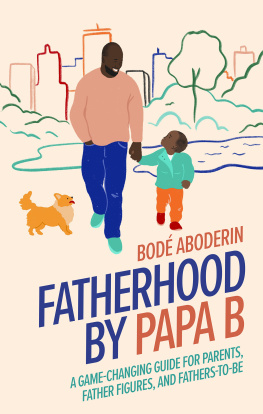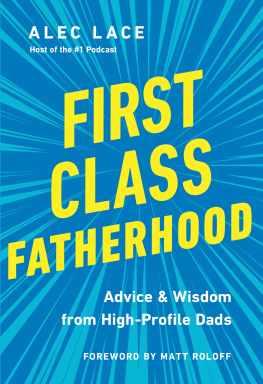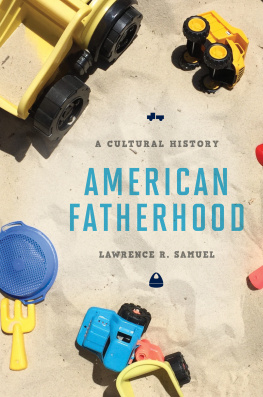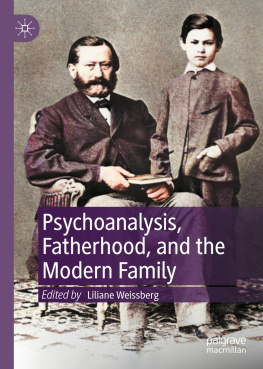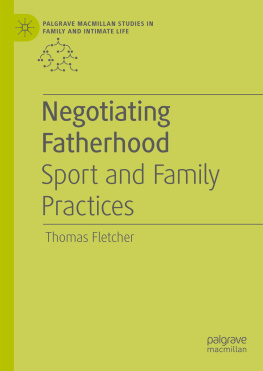Intimate Fatherhood
Fatherhood is gaining ever more public and political attention, stimulated by the increasing prominence of fathers rights groups and the introduction of social policies, such as paternity leave. Intimate Fatherhood explores discourses of contemporary fatherhood, mens parenting behaviour and debates about fathers rights and responsibilities.
The book addresses the extent to which fatherhood has changed by examining key dichotomies - culture versus conduct, involved versus uninvolved and public versus private. The book also looks at longstanding conundrums such as the apparent discrepancy between fathers acceptance of long hours spent in paid work combined with a preference for involved fathering. Dermott maintains that our current view of good fatherhood is related to new ideas of intimacy. She argues that in order to understand contemporary fatherhood, we must recognise the centrality of the emotional father-child relationship, that the importance of breadwinning has been overstated and that flexible involvement is viewed as more important than the amount of time spent in childcare.
Drawing on original qualitative interviews and large-scale quantitative research, Intimate Fatherhood presents a sociological analysis of contemporary fatherhood in Britain by exploring our ideas of good fatherhood in relation to time use, finance, emotion, motherhood and policy debates. This book will interest students, academics and researchers in sociology, gender studies and social policy.
Esther Dermott is Senior Lecturer in Sociology at the University of Bristol, UK.
Intimate Fatherhood
A sociological analysis
Esther Dermott
First published 2008
by Routledge
2 Park Square, Milton Park, Abingdon, Oxon OX14 4RN
Simultaneously published in the USA and Canada
by Routledge
270 Madison Ave, New York, NY 10016
Routledge is an imprint of the Taylor & Francis Group, an informa business
2008 Esther Dermott
Typeset in Times New Roman by
HWA Text and Data Management, Tunbridge Wells
Printed and bound in Great Britain by
CPI Antony Rowe, Chippenham, Wiltshire
All rights reserved. No part of this book may be reprinted or reproduced or utilised in any form or by any electronic, mechanical, or other means, now known or hereafter invented, including photocopying and recording, or in any information storage or retrieval system, without permission in writing from the publishers.
British Library Cataloguing in Publication Data
A catalogue record for this book is available from the British Library
Library of Congress Cataloging-in-Publication Data
Dermott, Esther, 1973
Intimate fatherhood : a sociological analysis / Esther Dermott.
p. cm.
Includes bibliographical references and index.
1. Fatherhood. 2. Fathers. I. Title.
HQ756.D47 2008
306.8742dc22 |
2007047147 |
ISBN10: 0415422612 (hbk)
ISBN10: 0415422620 (pbk)
ISBN10: 0203927060 (ebk)
ISBN13: 9780-415422611 (hbk)
ISBN13: 9780-415422628 (pbk)
ISBN13: 9780-203927069 (ebk)
Contents
I would like to acknowledge the support of the ESRC which funded both empirical research projects on which the book is based; also the UK Data Archive who supplied the BHPS and NCDS datasets, but who bear no responsibility for my analysis. My thanks go to the interviewees who participated in the Men, Work and Family Life project as well as the school principal who was invaluable in making access possible but unfortunately cannot be named, and to Michle Smith who was the research assistant on The Effect of Fatherhood on Mens Patterns of Employment research. Thanks also to Jacqui Gabb for allowing me to read and reference not yet published material. I am grateful to the University of Bristol who awarded me a University Research Fellowship during which time initial thinking about the book (if not the actual writing) took place and to the Department of Sociology who granted me research leave to complete it. I also wish to thank all those in the Department of Sociology who offered me support in writing the book, in particular Jo Haynes, Ruth Levitas and Tom Osborne. To Jo, thanks also for the diversion of La Bohme. I am especially indebted to Jackie West for her comments on a draft of the manuscript, not only were these engaged, insightful, constructively critical, and accompanied by lots of encouragement, but were also provided on demand at ridiculously short notice. Finally, very special thanks to Rich, who has been supportive throughout.
The setting is a seminar given by two senior male academics. The first speaker begins his talk by taking out of his pocket a bright blue childs watch, saying that he will rely on his sons dolphin watch to make sure that he doesnt go over time. The second speaker starts his talk more conventionally, mentioning his forthcoming book. After a comment from his co-presenter about his high rate of publication, he responds that any royalties will keep his children clothed and fed, adding that his productivity has gone down since the kids arrived. Now if this had been a workshop on fatherhood or family life, these comments would perhaps not have seemed exceptional but these were experts on nationalism and international migration. The incident serves as an example of the extent to which fatherhood is now pervasive as a comfortable public identity.
This increased visibility of men as fathers is part of a heightened awareness of the role of fathers that provides a rationale for sociological attention and, since Marsiglios claim over a decade ago that fatherhood remains a hot topic (1993: 484), an already substantial body of work has continued to accumulate. Yet the expansion of fatherhood studies has also revealed a diversity in fathering contexts which suggests the field is far from saturated (Lewis and Lamb 2006). However, because it is there cannot alone be an adequate rationale for academic attention. It is the different, sometimes polarised, opinions about modern fatherhood, within and outside the academy, that make it an intriguing topic of study. There is general agreement that the meaning of fatherhood has altered, but there is much less consensus over the extent of change and how modern fatherhood should be understood. Questions such as what involved fathering entails, whether the absence of fathers from families is problematic, whether breadwinning is an essential component of good fatherhood and if mothering and fathering are equal, all remain key areas of debate and have encouraged the recent tendency to situate fatherhood as a sui generis topic of study within the social sciences.
In order to address the extent of the transformation in fatherhood I make a case here for reconceptualising the way in which we think about contemporary fatherhood. The concept of intimacy allows for the examination of personal relationships both in terms of orientations and tasks; that is, what is being sought from and offered in a fatherchild relationship as an ideal and in terms of practical caring. Adopting this approach, I hope, allows for some creative thinking around our expectations of fatherhood. A better framing of key concerns can dissolve some problematic dichotomies in discussions of fatherhood: culture versus conduct, involved versus uninvolved and public versus private. Specifically, it provides a way of resolving longstanding conundrums, such as the apparent discrepancy between fathers acceptance of long hours spent in paid work combined with a preference for involved fathering. Nevertheless, this is a low-key argument: it does not attempt to raze previous thought to the ground, or reincarnate a theorist from another sub-discipline as providing


